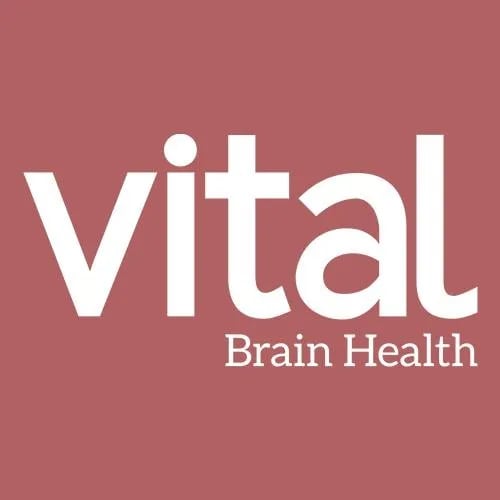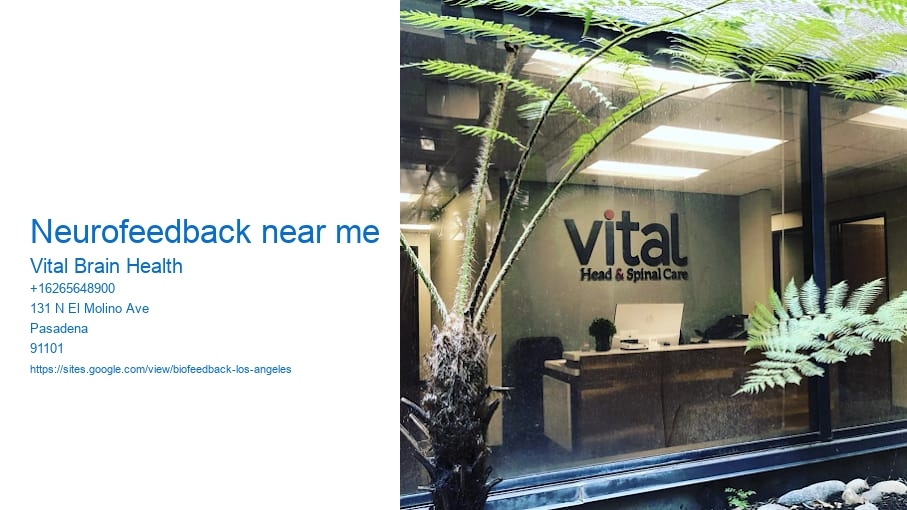Advantages of Local Neurofeedback Services
Neurofeedback, a form of biofeedback that focuses on training brain activity, has gained popularity as a non-invasive method to improve various cognitive and emotional functions. Best Biofeedback Los Angeles . As individuals seek out neurofeedback services, the benefits of choosing local providers become particularly evident. Opting for local neurofeedback services offers several distinct advantages that enhance the overall therapeutic experience and effectiveness of the treatment.
One of the primary advantages of local neurofeedback services is accessibility. Having a nearby provider means easier and more convenient scheduling of sessions, reducing the stress and time commitment associated with traveling long distances. This convenience can be particularly beneficial for individuals with busy schedules or those with mobility issues. By minimizing travel time, clients are more likely to adhere to the recommended treatment regimen, which can improve outcomes and ensure consistency in therapy.
Another significant advantage is the opportunity for personalized service. Local providers are often more attuned to the specific needs and cultural nuances of the community they serve. This understanding can lead to more tailored and relevant treatment plans that resonate with clients on a personal level. Additionally, local practitioners might have established relationships with other healthcare providers in the area, facilitating a more integrated approach to a clients overall well-being. This network can be invaluable in providing a comprehensive care plan that addresses both neurofeedback needs and any other health considerations.
Moreover, local neurofeedback services can foster a sense of community and support. Engaging with a provider who is part of the local area can create a comforting and familiar therapy environment. Clients might feel more at ease working with someone who understands their local context and shares their community values. This connection can enhance the therapeutic relationship, making clients feel more supported and understood throughout their neurofeedback journey.
Lastly, choosing local services can contribute to the local economy and support small businesses. By investing in local practitioners, clients help sustain the communitys economic health, which in turn can lead to more resources and services becoming available in the area. This positive cycle not only benefits individual clients but also strengthens the overall community infrastructure.
In conclusion, the advantages of local neurofeedback services are manifold, ranging from improved accessibility and personalized care to fostering community ties and supporting the local economy. These benefits make local providers an attractive option for those seeking neurofeedback therapy, ensuring a treatment experience that is both effective and enriching. As the demand for neurofeedback grows, the value of local services becomes increasingly apparent, offering a highly beneficial choice for individuals seeking cognitive and emotional improvements.

How to Choose the Right Neurofeedback Provider
Choosing the right neurofeedback provider is a crucial step in enhancing your mental well-being and overall quality of life. Neurofeedback, a form of biofeedback that uses real-time displays of brain activity, is a non-invasive technique that can help with a variety of conditions such as anxiety, depression, ADHD, and more. With its growing popularity, the number of providers is also increasing, making it essential to carefully select a provider who meets your needs and ensures effective treatment.
When starting your search for a neurofeedback provider, its important to consider their qualifications and experience. Look for providers who have received proper training and certification in neurofeedback.
- Biofeedback brain therapy Los Angeles
Another critical factor to consider is the providers approach and methodology. Neurofeedback is not a one-size-fits-all treatment, and different providers may use various techniques and equipment. Its beneficial to have a conversation with potential providers about their specific methods and how they plan to address your unique concerns. This discussion can help you gauge their expertise and determine if their approach aligns with your expectations and comfort level.
Additionally, consider the providers reputation and reviews from other clients. Personal testimonials and reviews can offer valuable insights into the efficacy of their treatments and the quality of their care. Dont hesitate to ask for references or consult online platforms where previous clients might share their experiences.

Location and accessibility are also practical considerations. Searching for "neurofeedback near me" can help you find local providers, ensuring that commuting does not become a barrier to consistent treatment. Regular sessions are typically necessary for neurofeedback to be effective, so choosing a conveniently located provider can contribute to the success of your therapy.
Finally, discuss the cost and payment options with potential providers. Understanding the financial commitment upfront will help you plan accordingly and avoid unexpected expenses. Some providers may accept insurance, offer sliding scale fees, or have payment plans to make treatment more affordable.
In conclusion, selecting the right neurofeedback provider involves careful consideration of their qualifications, approach, reputation, location, and cost. By taking the time to research and evaluate your options, you can make an informed decision that supports your journey toward improved mental health and well-being.
What to Expect During a Neurofeedback Session
Neurofeedback, a cutting-edge technique in brain training and therapy, is gaining popularity for its potential to enhance cognitive function, alleviate mental health issues, and promote overall well-being. If youre considering embarking on this journey, understanding what to expect during a neurofeedback session can help demystify the process and set the stage for a positive experience.

At its core, neurofeedback is a non-invasive therapy that uses real-time monitoring of brainwave activity to encourage self-regulation of brain function. When you arrive for your neurofeedback session, the environment is typically calm and welcoming, designed to make you feel at ease. A trained practitioner will guide you through the process, ensuring that you are comfortable and informed every step of the way.
The session usually begins with a brief consultation to discuss your goals and any concerns you may have. This is a collaborative process, where the practitioner seeks to understand your specific needs and tailor the session accordingly.
- Biofeedback Los Angeles mental health
As the session progresses, you will be asked to sit back and relax, often in a comfortable chair. The sensors transmit data to a computer, which then uses sophisticated software to analyze your brainwave patterns. This information is fed back to you in real-time through visual or auditory cues, often in the form of a video game, movie, or sound. The objective is to train your brain to achieve a desired state by providing feedback that encourages optimal brainwave patterns.
During the session, you may notice changes in the feedback based on your brains activity. For instance, if your brainwaves are moving towards a more relaxed state, you might see a clearer image or hear more harmonious sounds. This immediate feedback serves as a guide, helping you learn how to self-regulate your brain activity over time. The process is akin to learning any new skill-it requires patience and practice.
Neurofeedback sessions typically last around 30 to 60 minutes and are usually recommended in a series for the best results. After your session, you may feel relaxed or energized, depending on the focus of the training. Its important to note that neurofeedback is a gradual process, and significant changes may take several sessions to manifest.
In summary, a neurofeedback session is a unique experience that combines the latest in neuroscience with personalized, goal-oriented training. By understanding what to expect during these sessions, you can approach neurofeedback with confidence and an open mind, ready to explore the potential benefits for your cognitive and emotional health. Whether youre seeking to improve focus, reduce anxiety, or enhance overall brain function, neurofeedback offers a promising avenue for personal growth and well-being.
Success Stories and Testimonials from Local Clients
In recent years, the field of neurofeedback has garnered significant attention as a promising approach for addressing a variety of cognitive and emotional challenges. This non-invasive technique holds the potential to help individuals enhance their mental well-being and improve their quality of life. As interest in neurofeedback continues to grow, local success stories and testimonials from individuals who have benefitted from these services offer compelling and inspiring insights into its effectiveness.
Neurofeedback, also known as EEG biofeedback, is a therapeutic intervention that allows individuals to train their brain activity. By providing real-time feedback on brainwave patterns, neurofeedback helps individuals learn how to regulate their brain function, which can lead to improvements in areas such as attention, stress management, and emotional regulation.
Biofeedback Los Angeles mental health
- Los Angeles stress relief therapy
- At Vital Brain Health we help with los angeles innovative neurofeedback so you can smile a little more while finding balance in life
One of the most compelling success stories comes from a local teacher who was struggling with anxiety and attention issues. After years of trying various treatments with limited success, she decided to try neurofeedback at a nearby clinic. Over the course of several sessions, she noticed significant improvements in her ability to focus and manage stress. Not only did her professional performance improve, but her personal relationships also benefitted from her newfound emotional stability. Her testimonial speaks volumes to the potential of neurofeedback as a powerful tool for personal growth and well-being.
Another remarkable testimonial comes from a parent of a child with ADHD. Traditional treatments offered some relief, but the side effects were often too challenging for the family to manage. After researching alternative therapies, they discovered a local neurofeedback provider. With a customized training program, the child learned to better control impulsive behaviors and improve concentration. The parents were thrilled to see their childs confidence grow alongside their academic performance, and they credit neurofeedback as a pivotal turning point in their childs development.
These success stories are just a snapshot of the numerous positive testimonials from local clients who have experienced life-changing benefits from neurofeedback. While individual results may vary, the consistent theme among these accounts is one of hope and empowerment. Neurofeedback offers a unique and personalized approach to mental health care, allowing individuals to take an active role in their own healing and growth.
As more people share their experiences, the local community becomes increasingly aware of the potential of neurofeedback. This growing body of evidence not only supports further research but also encourages others to explore neurofeedback as a viable option for addressing their own cognitive and emotional challenges. The success stories and testimonials from local clients serve as a testament to the transformative power of neurofeedback, offering a beacon of hope for those seeking to improve their mental well-being.
